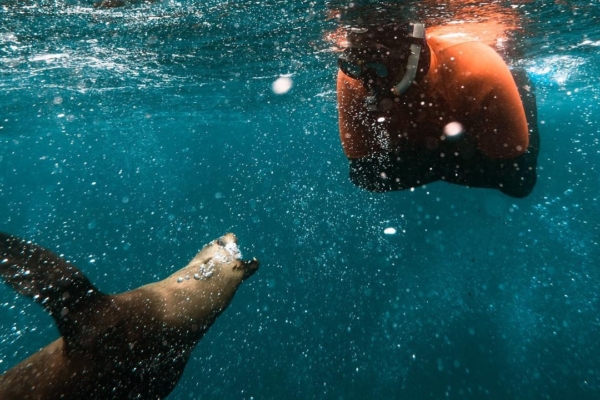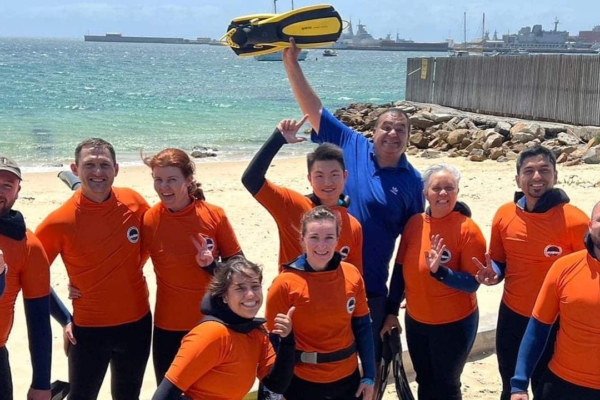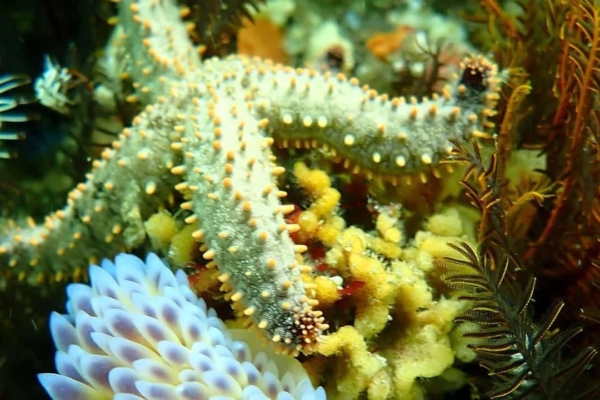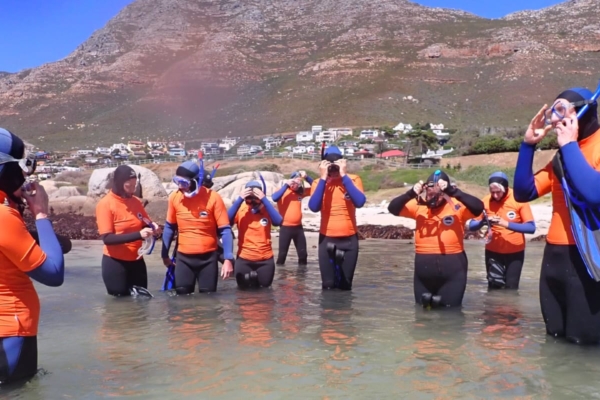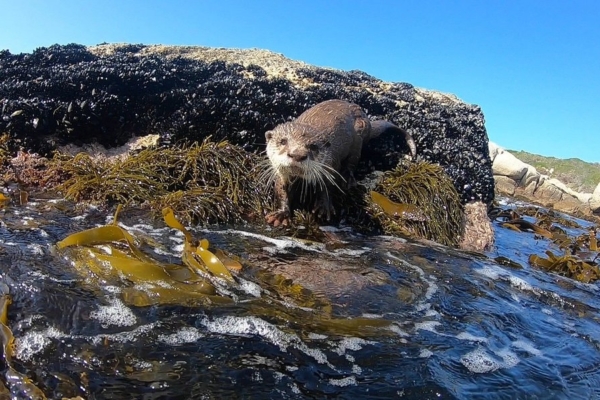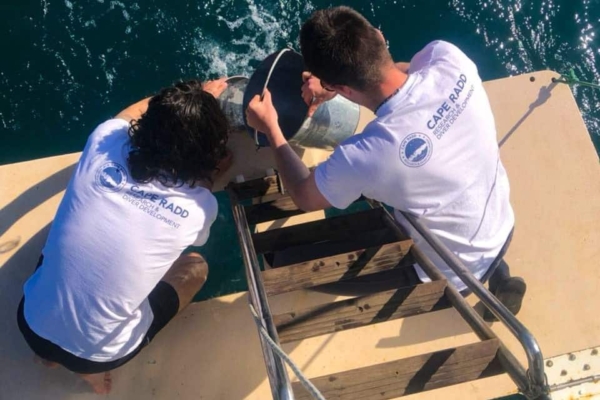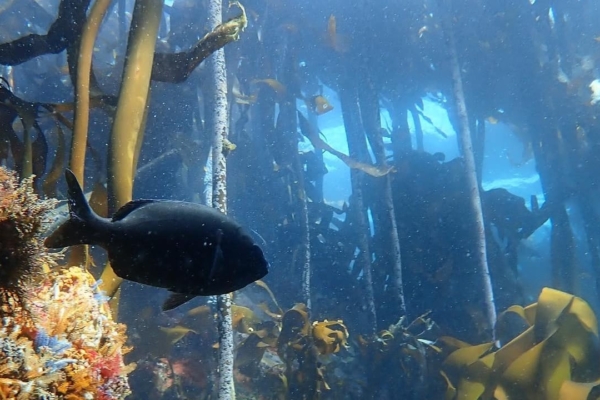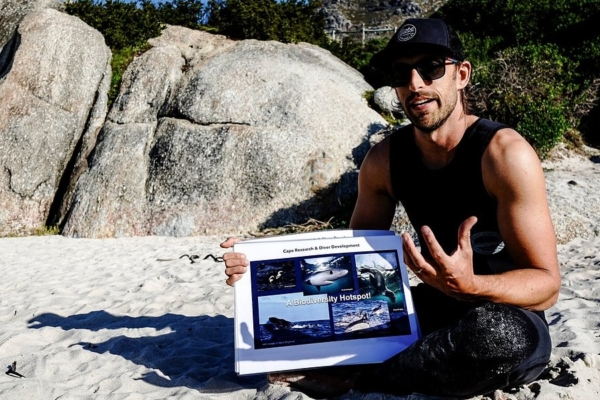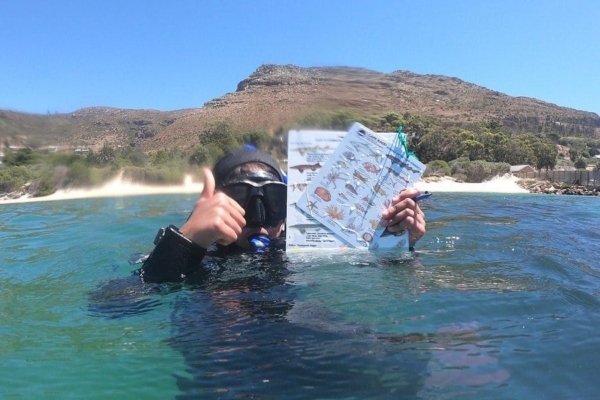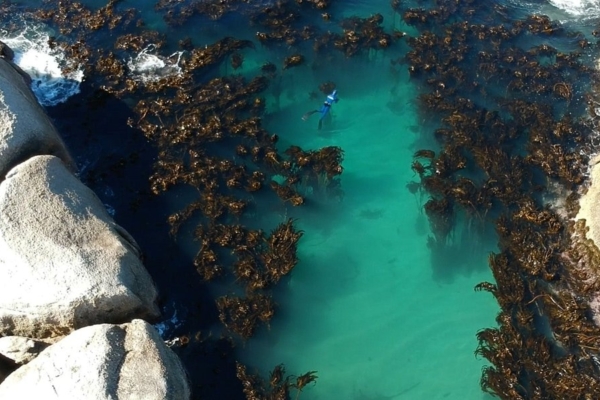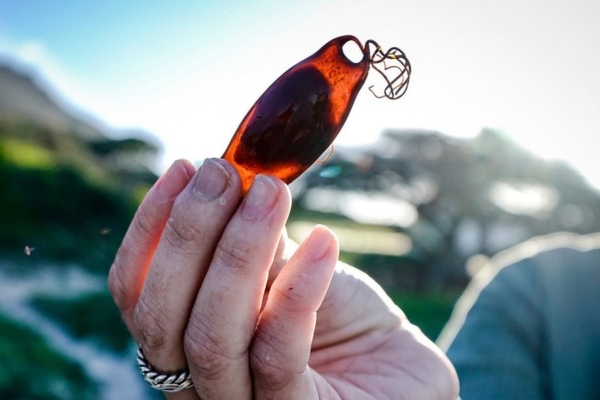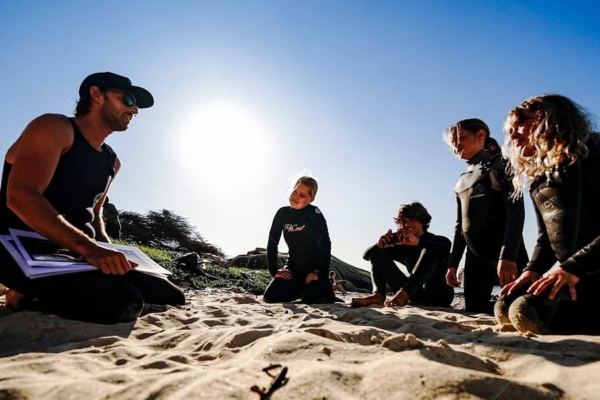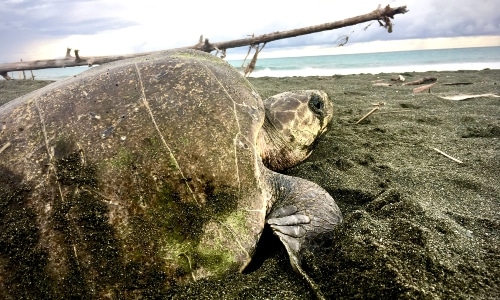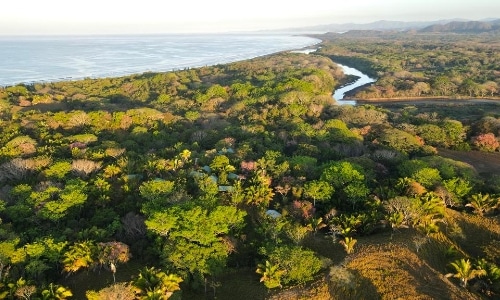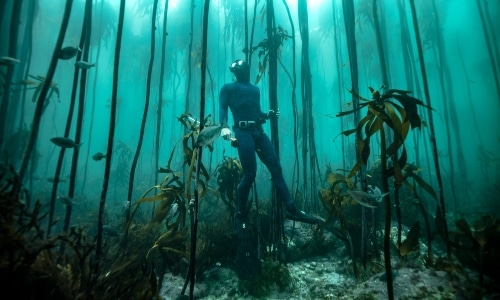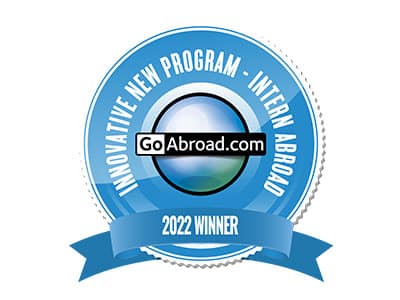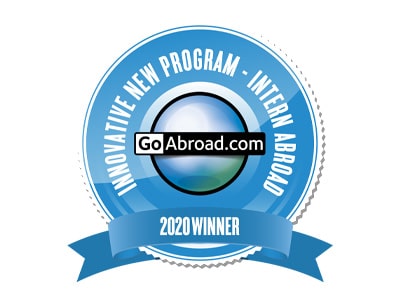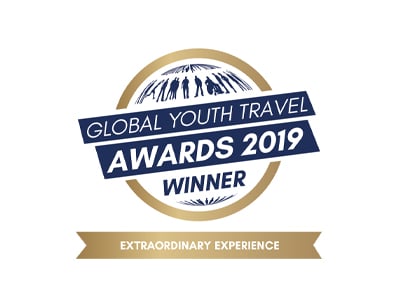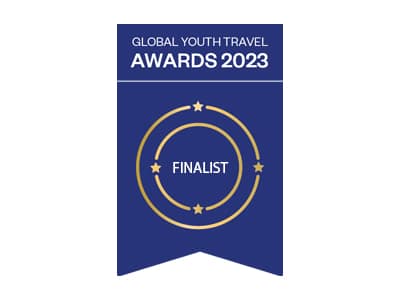MARINE CONSERVATION PROGRAM IN SOUTH AFRICA
PROGRAM OVERVIEW
CONDUCT RESEARCH DIVES ALONG THE WESTERN CAPE OF SOUTH AFRICA AND HELP DEVELOP METHODS TO BETTER PROTECT MARINE LIFE
This is your chance to gain valuable experience in marine conservation whilst contributing to important marine research projects helping to protect our oceans.
This organization is a marine research center committed to furthering knowledge of our oceans whilst promoting awareness of marine conservation and sustainable practices. They run a range of programs measuring and monitoring marine biodiversity and human impact on ocean environments. An instrumental part of their work is their citizen science programs which they use as a means of mass data collection and broadening the scope of their community outreach.
You’ll play a big role in assisting biologists and research assistants on underwater research dives and processing the data collected on these surveys. Your main duties however will be contributing towards their citizen science programs. This will include instructing participants, guiding dives and snorkeling trips, as well as corroborating the data collected with ongoing research projects.
ORGANIZATION
This organization is a marine research center based in the idyllic Simon’s town situated along False Bay, South Africa. At the meeting point of two major ocean currents from the west and east, the Benguela and Agulhas currents, this well-known hotspot for biodiversity is a significant site for marine science research boasting a variety of shark, cetacean, seal and fish species. The organization runs a range of research programs aimed to better understand marine environments, then develop and promote more effective methods of their conservation.
This organization has a special focus on citizen science, utilizing public engagement as a means of mass data collection whilst widening outreach for conservation awareness. They also actively collaborate with local initiatives, NGOs, and government agencies in a range of research programs and conservation projects. On top of this, they are committed to training early-career scientists in marine research methods so as to empower the next generation of ocean conservationists.
TASKS & REQUIreMENTS
The ideal candidate for this program is passionate about marine conservation, familiar with scientific research and data processing, and comfortable communicating with and leading small groups on research dives. Your daily tasks will include assisting with boat-based, land-based, and underwater research, training citizen science participants, deploying and retrieving research equipment, and inputting data collected on dives into databases.
Responsibilities
- Assisting biologists and research assistants on underwater research dives
- Processing data collected from marine surveys
- Snorkel surveys of endemic fish and sharks
- Kelp forest sampling
- Microplastic sampling field work
- Deploying and retrieving research equipment such as drop cameras and transect tapes
- Helping to coordinate and facilitate citizen science activities
- Instructing and training citizen science participants
- Helping with the upkeep and organization of diving equipment and boats
- Content creation for blogs, social media, and other online channels
Requirements
- No academic or professional background required
- Passion for marine conservation
- Willingness to learn about marine science research
- Physical fitness for snorkeling, diving experience is a bonus. If you want to (further) develop your diving skills, please contact us for additional information about a diving course
- Confident verbal communication skills
WHERE YOU’LL STAY
Accommodation is arranged on a case-by-case basis with interns staying in local rental properties within walking distance from the research center. At the center, you’ll have access to study spaces, diving equipment, and a well-stocked bar. In your downtime, you can enjoy a choice of delightful restaurants and bars in the area, embark on hikes around the attractive surroundings, or make the short trip to one of the most thrilling cities in the world, Cape Town.
Safety & Support
Safety & Support
Make sure to visit your doctor and dentist for a check-up before your internship and to get all the recommended vaccines and/or medications necessary to stay healthy. You are not located in a malaria risk area, so the people who live here do not take malaria medication.
Communication
Communication
There is internet access at the accommodation, but we also suggest acquiring a local mobile SIM from one of South African providers (Vodacom, MTN, Cell C, Telkom and Virgin), which are inexpensive and will make it easier to communication with your team members. For this, your phone must be unlocked for international use. You can use your own SIM if your network allow international use, however this can be costly.
Meals
Meals
Accommodation is self-catered and you will have a student shared kitchen with everything you need to prepare your own meals. You will be taken to the local grocery store whenever you need to get supplies.
Location details
Location details
You’ll be situated in the quaint town of Simon’s Town in False Bay, South Africa. This small suburb on the outskirts of greater Cape Town is nestled in a stunning area boasting exquisite beaches, incredible marine life, and mountainous surroundings. Based on a peninsula that splits the Atlantic and Indian Oceans, the water sees a spectacularly diverse range of marine life with a multitude of shark, cetacean, seal and fish species, as well as kelp forests and natural reef systems. Here you’ll find an exciting array of marine environments to explore and study during your internship.
DATES & RATES
Fee Breakdown
The program starts every first Monday of the month between February and November. So you cannot start this internship in December or January.
What you’ll pay (2025 rates)
2 weeks USD 1,760
3 weeks USD 2,300
4 weeks USD 2,990
5 weeks USD 3,680
6 weeks USD 4,025
Inclusions
- Careful matchmaking. It takes time to find the right internship for each person, and we take this process very seriously
- Initial interview with one of our team to gauge your skills, interests, and desired learning outcomes
- Assistance with your visa arrangement & other preparations
- Transfer from Cape Town International airport to your accommodation and back on arrival and departure day
- Shared accommodation in Simon’s Town
- Transport between your accommodation and the headquarters
- All diving and equipment hire
- Supervision and support during your internship
- Regular check-ins and feedback from your supervisor
- Marine protected area permits
- Troubleshooting if needed
- A reference letter at the end of your internship
Exclusions
- Flights to Cape Town
- Visa and medical/travel insurance costs for the duration of your placement – must include cover for scuba diving and repatriation
- Meals, drinks, snacks, and items of personal nature (f.e. curios, gifts, clothing)
- Costs for additional excursions or activities
GALLERY
FAQs
Some of our most commonly asked questions for programs in South Africa.
What can I expect from a NGO internship in South Africa?
During your internship in South Africa you can expect to meet people from around the world, as well as indulging yourself into the culture of this beautiful country! If you want to know more about what to expect, make sure to check out our top 7 reasons for an internship in Cape Town.
Will I have time to explore South Africa during my internship?
Yes! We partner with various activity organizers that can offer discounts exclusive to Roots Interns, for example, a road trip through the Garden Route and bungee jumping off the world’s largest natural bungee. You may also explore the country on your own and we are happy to give recommendations.
Am I able to do an internship while on a study program in Cape Town?
Yes! You are able to do a part-time internship with certain organizations so that you can continue your studies, while also gaining valuable work experience.
Will I receive a stipend of any kind during my internship with Roots?
Unfortunately, no. When working with a nonprofit organization, your internship will be unpaid, but there are many ways to fund your internship. Your experience will bring a wealth of knowledge and opportunities for both professional and personal growth that are invaluable!
QUICK FACTS
HIGHLIGHTS
- Gain international experience in a marine conservation context
- Develop a strong understanding of marine science and ecology
- Familiarize yourself with boat-based and land-based field research methods
- Work as part of a dedicated experience team of marine scientists
- Travel to a stunning location within visiting distance of Cape Town
HOW TO APPLY
If you’re ready to apply for this internship, here’s what to do:
APPLY
Fill in the application form (it will show in a new screen) which includes sharing your CV to us.
SPEAK WITH AN ADVISOR
We’ll set up a call with you to go through your application.
INTERNSHIP MATCHING
If we feel it’s a good match, we’ll set up a call between you and the supervisor for this internship.
PAYMENT
If everyone’s happy, we’ll provisionally confirm your placement! We’ll then send you the invoice for the deposit, getting started with the booking process and all the info you need.
CONFIRMATION
Only once we receive payment of the deposit your placement will be confirmed.
NEED TO MAKE AN ENQUIRY FIRST?
Or if you’d just like to ask us some questions about this internship first, just fill in the contact form below. We’ll be happy to assist!
"*" indicates required fields
RELATED PROGRAMS
Sea Turtle Conservation Internship
- Min. 6 weeks
- Carate, Costa Rica
- Data Collection, Marine Conservation, Education, Research
Conservation Research Internship
- Min. 8 weeks
- Manzanillo, Costa Rica
- Data Capture, Permaculture, Conservation, Education, Monitoring, Research
Marine Science Field Research Internship
- 2-4 weeks
- Simon's Town, South Africa
- Conservation Work, Research Dives, Data Collection
RELATED BLOGS
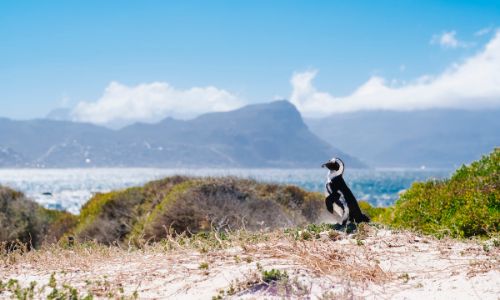 8 Reasons to do a Marine Conservation Internship
8 Reasons to do a Marine Conservation Internship
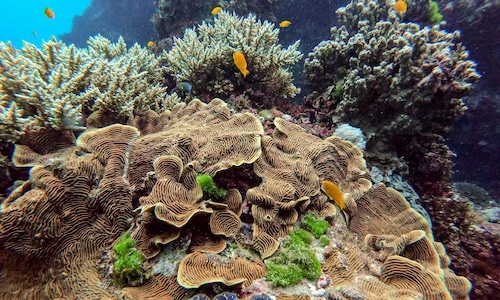 Best Marine Internships for 2024
Best Marine Internships for 2024

